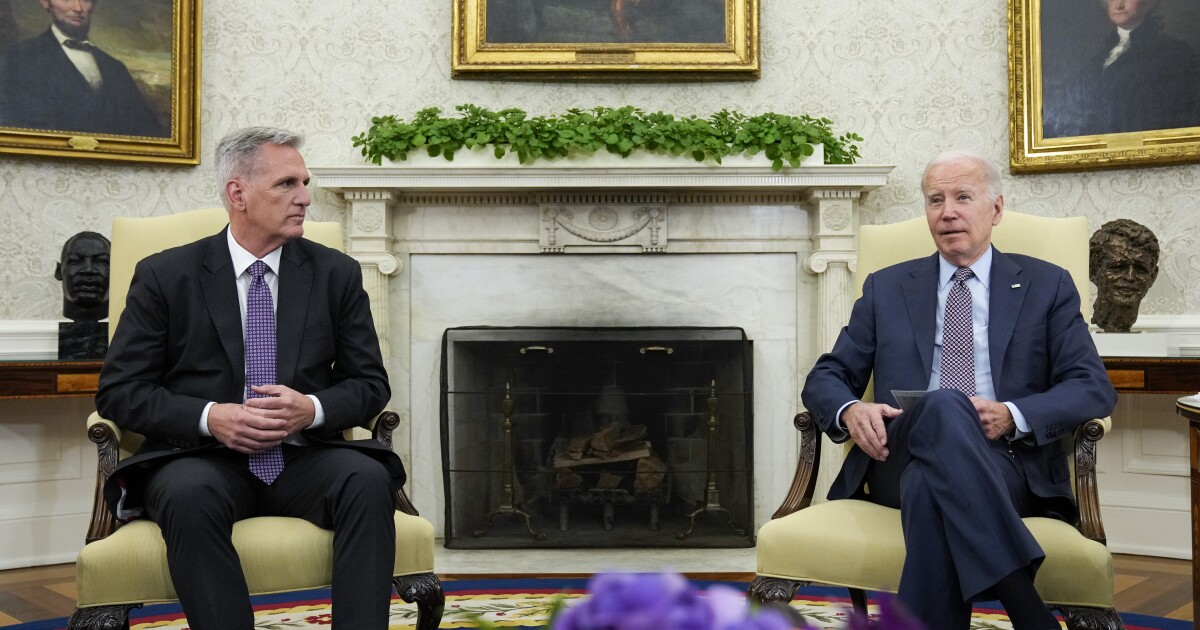

House Speaker Kevin McCarthy (R-CA) and President Joe Biden have not come to a debt ceiling deal 10 days before the Treasury Department believes the country could default on its loans.
“We don’t have an agreement yet, but I did feel like the discussion was productive,” McCarthy told reporters Monday at the White House after the almost 90-minute meeting. “We’re going to have the staffs continue to get back together.”
EVERYTHING YOU NEED TO KNOW ABOUT TIM SCOTT AHEAD OF HIS BIG 2024 ANNOUNCEMENT
Both men projected confidence regarding the prospect of a bipartisan debt ceiling deal after Treasury Secretary Janet Yellen earlier Monday updated her X Date projection, when the federal government can no longer pay its already accrued bills, from “likely” to “highly likely” as early as June 1.
McCarthy described the tone on Monday’s meeting “was better than any other time we’ve had discussions,” despite “philosophical differences,” including passing a bill raising the debt ceiling without spending cuts, increasing taxes, and tinkering with the Pentagon‘s budget. He additionally declined to waive the House’s three-day rule for lawmakers to review legislation before voting on it or to support a short-term extension.
“We both agree we want to be able to come to an agreement,” he said. “We both agree on the areas that we know there’s disagreement on.”
“We’re pretty well divided in the House, almost down the middle, and it’s not that different in the Senate, so we’ve got to get something we can sell to both sides,” Biden added earlier in the Oval Office.
CLICK HERE TO READ MORE FROM THE WASHINGTON EXAMINER
Also earlier Monday, McCarthy dismissed concerns he could face a speakership challenge over a bipartisan debt ceiling deal. Instead, he underscored to Capitol Hill reporters the importance of reaching an agreement “this week to be able to pass it and move it to the Senate,” but noted “nothing’s agreed to” yet.
“If you come to an agreement, it takes time to write it,” the speaker said. “In the House, we changed the rules so we make sure you get 72 hours so everybody can read it. Then you pass it in the House and you send it to the Senate. I think the Senate could probably act faster than I thought in the past, but we’re going to need a couple of days.”





